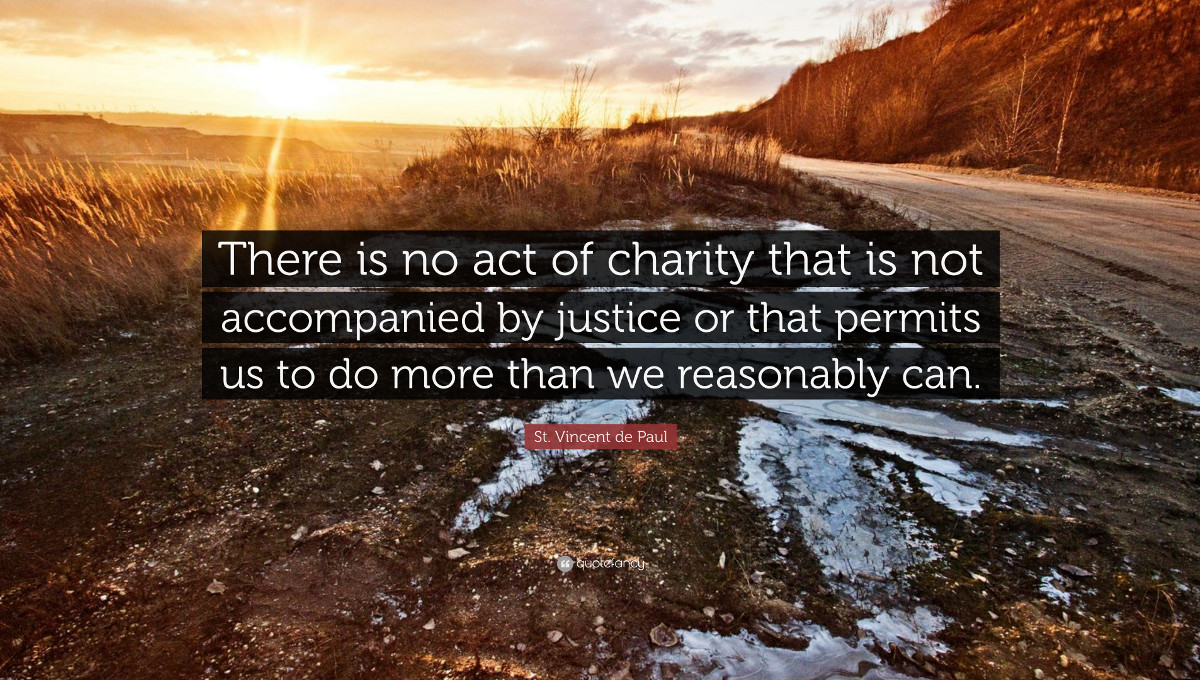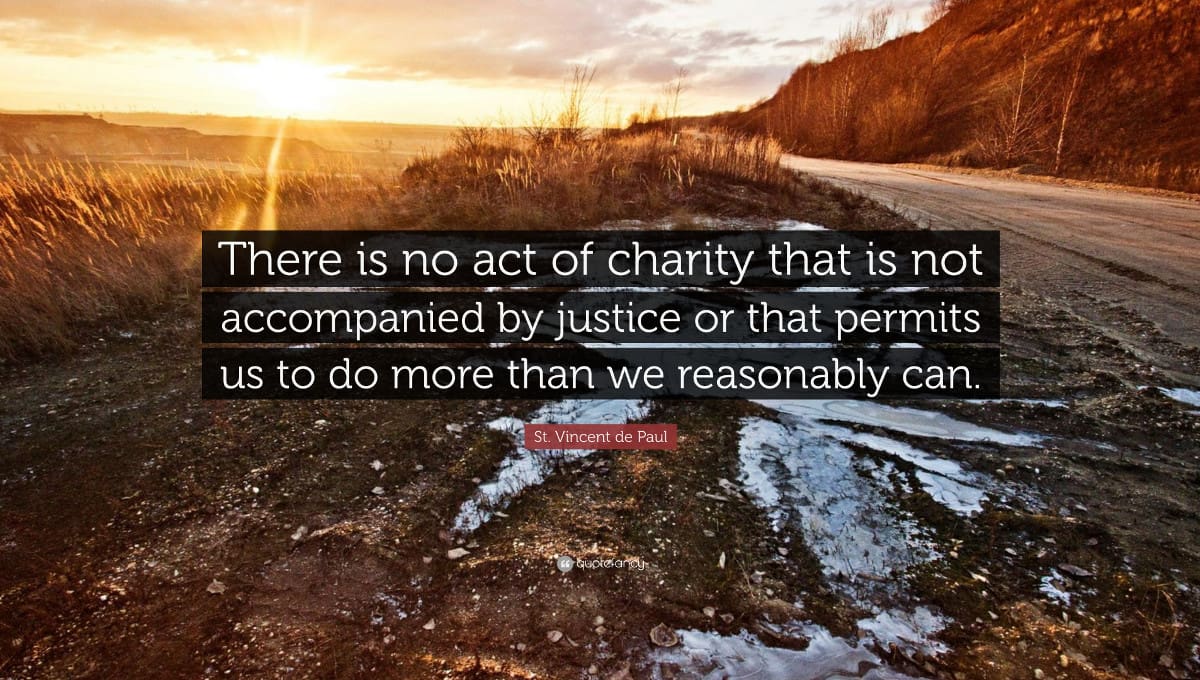Exposing Vincentian “Fake News”
Every so often, years ago as a poster, now as part of a Facebook or Instagram “meme” or in a (dread the thought) powerpoint presentation, I see what amounts to Vincentian Fake News.

What do I mean? I mean quotes taken out of context or attributed incorrectly. The most famous is “It is by your love alone that the poor will forgive you the bread that you give them.” Not Vincent! Actually, it’s the creation of Jean Anouilh, who fashioned the screenplay for Monsieur Vincent. Done. Not Vincent. Like Vincent, but not. Here are two more.
1. Que j’ai peine de votre peine
Often used to show the “tender heart” of St. Vincent, it actually shows the opposite. As Vincentian scholar Fr. Thomas Davitt has pointed out,
In 1631, six years after her (Louise’s) husband’s death, two years before the foundation of the Daughters, a man was pestering her, claiming she had been promised to him in marriage. Vincent plays this down, pointing out that she was over-reacting:
I’m sorry you’re in trouble! But so what! Since this is the order of Providence, what can be done about it? And what real damage are you afraid of from this? So here’s a man who says you promised to marry him, which is not true. You are being falsely complained about. You are worrying about this, but for no reason. Are you afraid that people are talking about you? They may be, but you can take it for granted that that is one of the great ways of resembling the Son of God that you can have while on earth, and that you will achieve self-mastery by this which you would never have been able to do (I 142; ET 138).
The opening sentence in that passage, “I’m sorry you’re in trouble” in French is “Que j’ai peine de votre peine” and there are many copies around of a poster of St Vincent with this under it. I think it is a bit unfair to use it out of context.
Not too tender, is he?
2. “Charity is not charity if unaccompanied by justice.” and similar.
Usually quoted to promote the necessity of Vincentians being involved in systemic approaches to the solution of poverty rather than simple direct service, this phrase is also severely out of context. Check out this daily reflection (posted by us!!)
“Charity is not charity if unaccompanied by justice or if it suffers us to do more than we can reasonably perform.”
– St. Vincent de Paul– Make me, O Lord, not only more sensitive to the silent cries of my poor and downtrodden brothers and sisters, but above all, their need to be heard and justly treated.
But actually, Vincent was explaining why you can’t use money donated for one purpose to serve another, even if the purpose is “more worthy.” Here’s what was going on, in a letter from Vincent to François de Coudray (CCD II:68:
Mathieu’ is bringing you your little allowance and you will adjust your expenditures accordingly. As for the two thousand livres you received for the religious from M. de Saint-Nicolas,’ in the name of God, Monsieur, use none of it for any other purpose under any pretext of charity whatsoever. There is no act of charity that is not accompanied by justice or that permits us to do more than we reasonably can.
Direct service vs. systemic reform? Nope. A contractual justice obligation to be fulfilled.
Anouilh was right. We probably need to be forgiven for permitting social inequality to grow. Vincent had tenderness of heart. He understood that some problems require a complex, even systemic, response. But we can’t learn it from these quotes. They are “fake news.” We need to study Vincent’s words, and Louise’s and Frederic’s and Elizabeth Ann’s and…. not just on social media.
Tags: Vincentian quotes







0 Comments